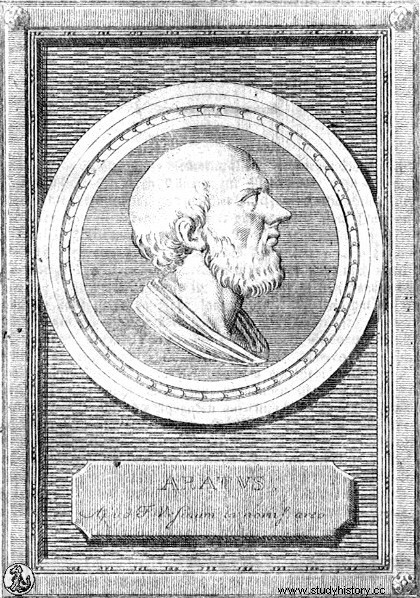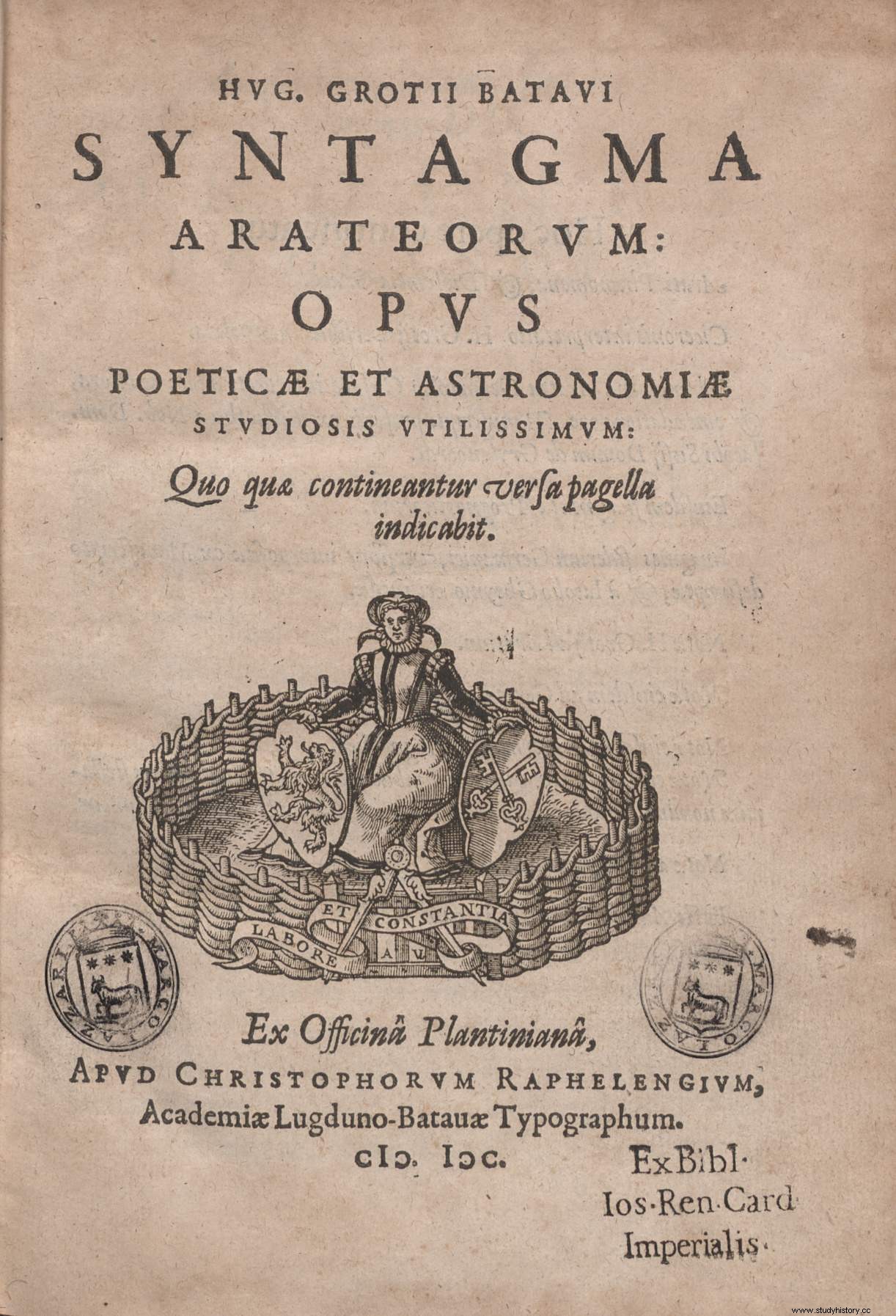Circa 310 B.C. was born in the city of Solos Arato, one of the most renowned poets of antiquity. The ancient Soli Greek, which the Romans renamed Pompeyópolis , is located today in the Turkish province of Mersin, in the south of the country on the Cilician coast.
It had been founded around the year 700 B.C. by settlers from the island of Rhodes or the city of Argos in the Peloponnese, being able to maintain its autonomy when in 449 B.C. was incorporated into the Persian empire.
In 333 BC the conquest by Alexander the Great established a democracy and, on his death, it became part of the Seleucid Empire. It will be in this context when Arato is born, of whose first years of life hardly any data is known.

It is known that at some point he went to Athens to study with the Stoic philosopher Zeno of Citium, who introduced him to the environment of the Macedonian king Antigonus Gonatas, who was so impressed that he invited him to his court of Pella to officiate his wedding in the year 276 BC
During his stay in Pella, in which he exercised his main profession as a doctor, he composed several works on grammar, philosophy and poetry, including a hymn to Pan in which he glorified the figure of Antigonus and his victory over the Celts in the year 277. BC But he would be best known for his didactic poems on topics in anatomy, pharmacology, and astronomy. Unfortunately all of his works have been lost, except one, the Phenomena .
Written around the year 275 B.C. the phenomena they are a masterpiece of Hellenistic poetry, so much so that they became the most famous poem of Antiquity after the Iliad and the Odyssey. The first part of the poem, which makes clear the author's stoicism, contains a catalog with the descriptions and position of the constellations, along with stories about their mythological origin, and even talks about the movements of the Moon and the Sun and their influence over men.
The second part contains practical tips for predicting the weather, based on observations of the sky and natural phenomena.
Throughout antiquity the Phenomena would be the subject of comments, criticism, reissues and translations, spreading widely throughout the Mediterranean world. Even Cicero and Virgil would contribute their own Latin versions of the poem, admiring the way in which Aratus had managed to transform something a priori as unpoetic as science into poetry.

At the same time, and despite the many errors it contains, it had a great impact on the history of astronomy, since it helped to preserve for posterity the ideas of Eudoxus of Cnidus, the considered father of mathematical astronomy, and the doctrine Peripatetic weather. During the Middle Ages the text continued to circulate in Greek, Latin and Arabic (being one of the few Greek poems that were translated into this language), losing importance only after the translation of the Almagest of Claudius Ptolemy by Gerard of Cremona in the 12th century.
Even in the Acts of the Apostles , the fifth book of the New Testament, the quotation from the fifth verse of the Phenomena is placed in the mouth of Saint Paul . Today the lunar crater Aratus bears his name.
Aratus would die in Pela around the year 240 BC. and his remains would be transferred to his hometown Solos, where a monumental tomb worthy of such a great and important poet was built.
It is located very close to the old port of the city, buried under a field of orange trees near the columns of the old city. A few days ago the Turkish newspaper Hurriyet Daily News echoed the difficulties in excavating it, since it is located on private land in the current city of Mezitli, whose expropriation seems to be highly expensive.
For this reason, it remains hidden from the world, keeping its secrets without ever being able to open, except for a sign that, in Turkish and English, informs tourists of its existence.
Update:On October 4, 2020, archaeologists uncovered the tomb.
Recommended book:Phenomena (Arato de Solos).
